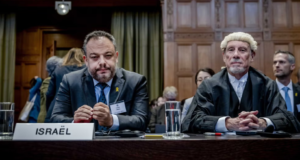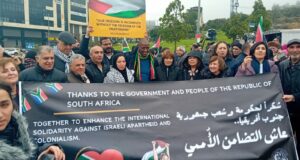To view original report published by the Office of the High Commissioner for Human Rights (OHCHR) click here
25 August 2008
The landing of two wooden boats carrying 46 human rights activists in Gaza this past weekend is an important symbolic victory, says Richard Falk, the Special Rapporteur on the situation of human rights in the Palestinian territories. This non-violent initiative of the Free Gaza Movement focused attention around the world on the stark reality that the 1.5 million residents of Gaza have endured a punitive siege for more than a year. This siege is a form of collective punishment that constitutes a massive violation of Article 33 of the Fourth Geneva Convention.
The siege, the coastal blockade, and the overflights by Israeli aircraft all bear witness to the fact that despite Israel’s claimed ‘disengagement’ in 2005, these realities on the ground establish that Gaza remains under Israeli occupation, and as a result Israel remains legally responsible for protecting the human rights of its civilian population. By severely restricting the entry of food, fuel, and medicine the economic and social rights of the people of Gaza have been systematically violated. There is widespread deafness among the people of Gaza that is blamed on the frequent sonic booms produced by overflying Israeli military aircraft. For this reason the peace boats brought 200 hearing aids to Gaza added Falk.
I strongly urge the international community to take action to uphold human rights in the Gaza Strip. As with other humanitarian catastrophes in the world, here is a situation where the ‘responsibility to protect’ norm endorsed by the Security Council seems applicable, but has been ignored despite the overwhelming evidence of deteriorating mental and physical health in Gaza that has reached crisis proportions. With a cease-fire in effect since June 19, perhaps the willingness of Israel to allow these boats to land without interference signals a subtle change of approach by Tel Aviv that includes a show of greater respect for international humanitarian law and for the standards of international human rights, the Special Rapporteur said.
Mr. Falk also called on the government of Israel to grant exit permits to several Palestinian winners of a Fulbright Scholarship to study in the United States who might be taken back to Cyprus on the return voyage of the peace boats. If they are permitted by Israel to reach their destination without interference this will be a further sign of progress. Above all, what is being tested is whether the imaginative engagement of dedicated private citizens can influence the struggle of a beleaguered people for basic human rights, and whether their courage and commitment can awaken the conscience of humanity to an unfolding tragedy.
 International Solidarity Movement Nonviolence. Justice. Freedom.
International Solidarity Movement Nonviolence. Justice. Freedom.


